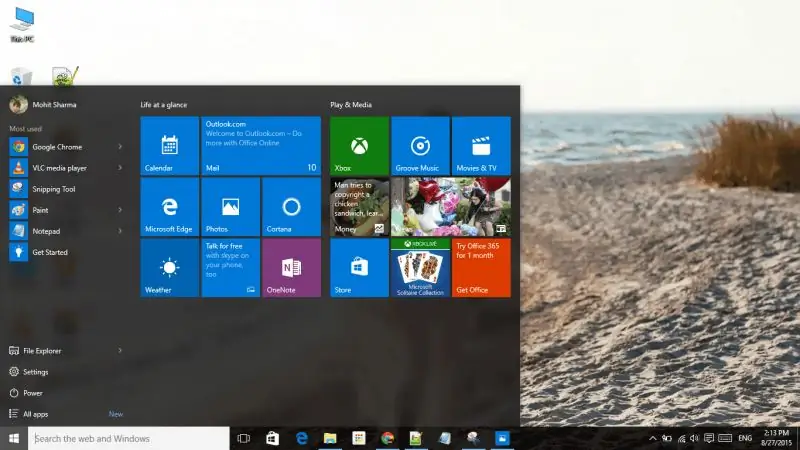
Table of contents:
- Original interface or what is Windows 10 personalization
- Personalization for activated Windows 10
- Video: How to change the color of windows and taskbar in Windows 10
- Unlock personalization settings for non-activated Windows 10
- Programs for advanced customization of personalization
- Personalization issues in Windows 10
- Disable visual effects in Windows 10
- Author Bailey Albertson albertson@usefultipsdiy.com.
- Public 2023-12-17 12:53.
- Last modified 2025-01-23 12:41.
Original interface or what is Windows 10 personalization
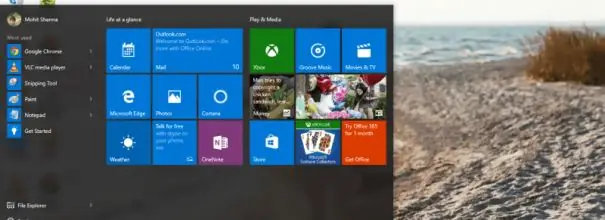
The main advantage of the Windows 10 user interface is the easy and varied appearance settings. Each owner of a device running on this operating system has the ability to change the picture on the screen to his liking and discretion.
Content
-
1 Personalization for activated Windows 10
- 1.1 Setting appearance options
- 1.2 Download and install new themes
- 1.3 Where themes are stored
- 2 Video: How to change the color of windows and taskbar in Windows 10
- 3 Unlock personalization settings for non-activated Windows 10
- 4 Programs for advanced customization of personalization
- 5 Problems with personalization in Windows 10
- 6 Disable visual effects in Windows 10
Personalization for activated Windows 10
Changing the appearance of Windows 10 is made from the context menu in the "Personalization" section or from the main menu of the system ("Start → Settings → Personalization").
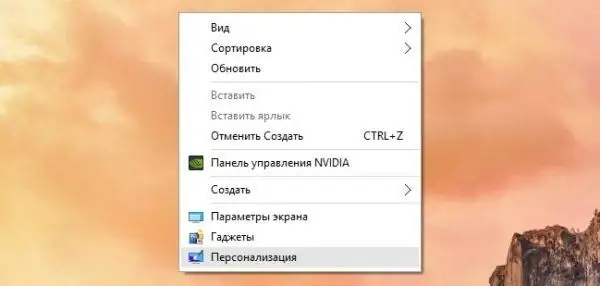
To enter the personalization settings, right-click on the desktop and select "Personalization"
Customizing appearance options
To replace the desktop background, you must enter the "Background" section of the "Personalization" console. After that, select a standard image or specify the location of a graphic file, the image of which will be used as a background. In the second option, one of the following conditions must be set for the selected image:
- filling;
- to size;
- stretch;
- to pave;
- centered extension.
You can set multiple images in a slideshow by specifying the frequency and order of the images.
Another option is to choose a background color without an image.
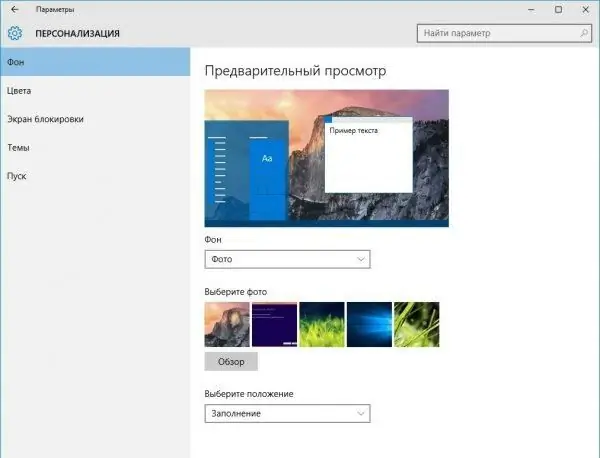
Select the "Background" menu item and adjust the background settings
Changing the color palette of the main menu, notification center, taskbar and other components of the interface occurs in the "Colors" tab. The choice of color can be automatic or set manually. It is also possible to make all elements transparent.
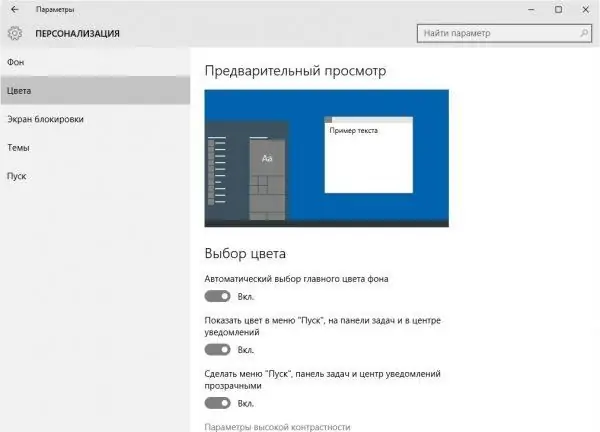
Set color options for the main menu, taskbar, and action center
In the "Lock Screen" item, you can customize the screen saver that appears on the display when the PC is locked. There are three options for screensavers:
- single photo;
- slide show;
- windows: interesting.
When you click on the link "Advanced slideshow settings", you can get to the fine-tuning menu of this mode.
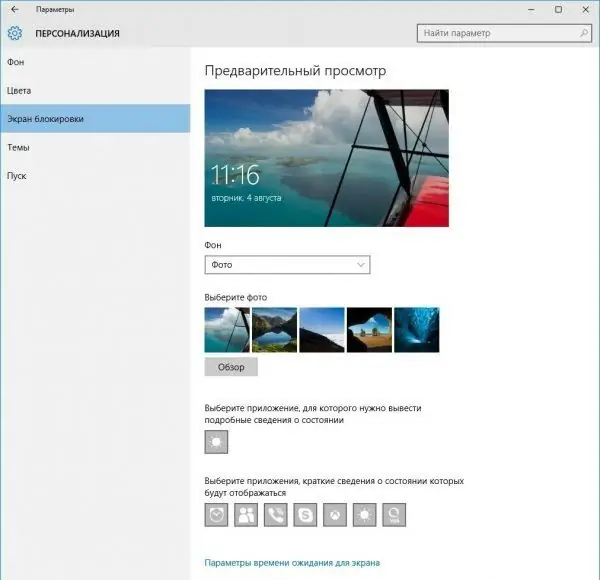
Select a single photo or a group of images (slideshow) as your lock screen background
The "Themes" section contains settings for standard screen themes. Here you can select a theme, customize the sounds that the system produces when certain events occur, and also set the appearance of the desktop icons and the mouse cursor.
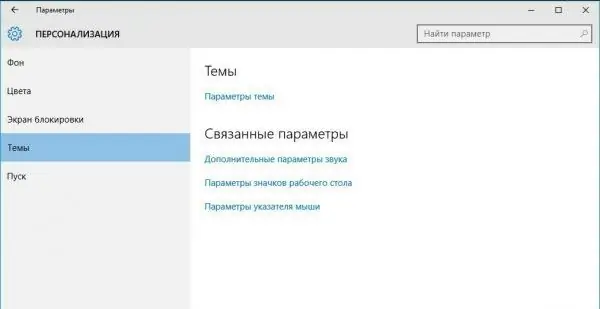
Select one of the pre-installed themes and customize the sound settings, the appearance of the desktop icons and the mouse cursor
Download and install new themes
Many users don't know that desktop themes and wallpapers can be found on the Microsoft website. To do this, go to the "Theme Options" section and follow the link "Other Themes on the Internet". This will open the Personalization Gallery, which has a wide variety of themes. After launching the file using the link, the corresponding theme will be installed on the device and will appear in the "My Themes" tab.

To download the theme you like, select one of them and click "Download"
To delete an unnecessary topic, you need to move the mouse pointer over it, right-click and select "Delete topic". This topic should not be active during uninstallation.
Where themes are stored
All installed skins can be found in the Web folder by following the path: C: / Windows / Web.
It contains several internal folders:
- 4K - here is the official system screensaver;
- Screen - this folder contains background images of the lock screen;
- Wallpaper - This is where the three official themes and related images are stored.
Themes downloaded by yourself can be saved anywhere on the hard drive of the user's choice.
Video: How to change the color of windows and taskbar in Windows 10
youtube.com/watch?v=hVo1FNvwMgs
Unlock personalization settings for non-activated Windows 10
If the Windows 10 operating system was installed for informational purposes only and activation keys were not entered during its installation, then the personalization settings will be blocked. The rest of the functionality will be fully available, you can even use the Power Shell console without any problems.
To unlock the personalization settings in a non-activated OS, you need to right-click on the "Network" icon located in the lower right corner of the screen. After that, select the item "Network and Sharing Center" and follow the link "Change adapter settings". Then select the modem and disconnect it. Now all that remains is to restart your computer and the personalization options will be unlocked.
Once unlocked, you can make personalization settings in the same way as for activated Windows 10
Programs for advanced customization of personalization
Some PC users are not satisfied with the usual personalization settings, so they are looking for programs that can expand the possibilities in the design of the desktop interface.
One of the most powerful programs of this type is the Winaero Tweaker utility. After starting the installer, you need to select one of the installation options.
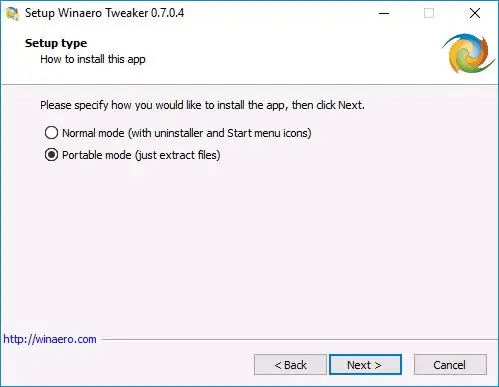
Select the standard installation mode when the program is registered in the Programs and Features menu, or simply unpack the files to the specified folder
The Winaero Tweaker utility allows you to:
-
Include hidden Aero Lite theme, change appearance options, use colored window titles, and influence the behavior of themes.

Styling the interface with Winaero Twiker By choosing one of the design conditions, you can slow down the animation, change the colors of inactive windows, enable and disable the dark theme of Windows 10
- Change font sizes, as well as select specific fonts and their styles (regular, italic, bold) for any screen element.
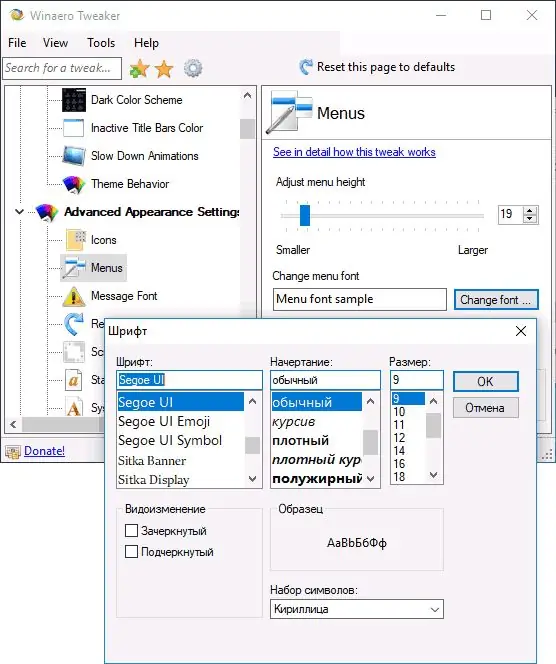
Set the settings for icons, fonts, the size of scrollbars, window borders, and if the desired result is not achieved, then reset the additional settings to their original state using the Reset Advanced Appearance Settings item
You can use the Start 10 utility to customize the Start menu.

Select the desired menu item to configure the required settings
It changes the font, color and animation mode. For quick customization, you can use ready-made themes.
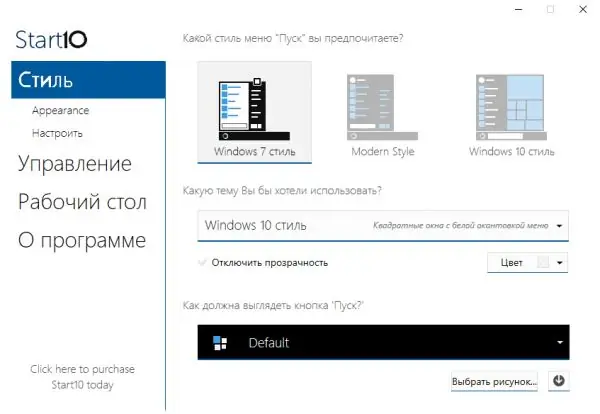
You can choose the style of the main menu similar to Windows 7, keep the standard style of Windows 10, or modernize it to your liking
WindowBlinds is designed to change the appearance of windows, captions, buttons and other elements. It, like the Start 10 utility described above, allows you to radically change the appearance of the operating system in a few clicks.
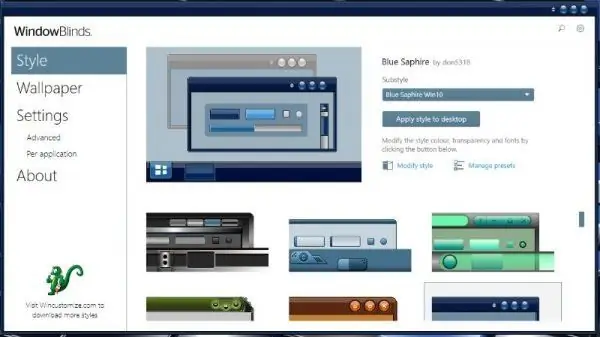
To change the design of windows, you need to choose one of the proposed styles
Personalization issues in Windows 10
PC users often face a problem when they cannot open the computer settings and personalization settings.
To solve it you need:
-
Download the special program https://aka.ms/diag_settings from the official website and run it.

Diag_settings program to troubleshoot Windows 10 settings The program launches the error correction tool
-
After it loads, click the Next button and wait for the utility to fix the error. When finished, the customization and personalization options are available again.

Troubleshooting report Wait for the diag_settings program to exit and show all found and fixed errors
-
If the error is not resolved, then you can try to recover lost or damaged files using the command Dism / Online / Cleanup-Image / RestoreHealth, which runs in the command line.
After starting the program, a window will appear showing the progress of the recovery process. Wait for it to complete and then restart your computer.

RestoreHealth utility window If the recovery process is successful, restart your computer
If all of the above steps do not work, you can roll back Windows to the previous restore point.
To do this, enter the "System Properties" console, select the "System Protection" tab, click the "Restore" button, in the list that opens, select the desired restore point, click on it and roll back.
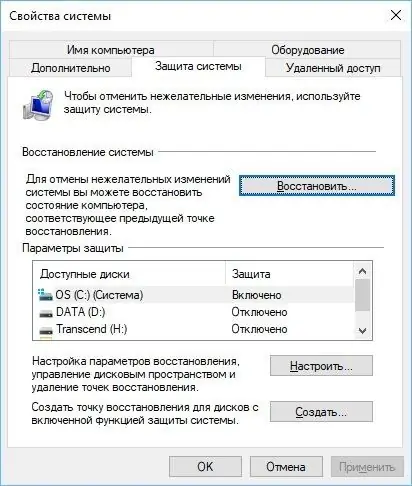
Click on the "Restore" button, select a restore point and roll back
Disable visual effects in Windows 10
Sometimes you have to disable most of the visual effects to speed up your PC.
To improve performance, right-click on the Start menu and open the System tab. Next, in the left column, select "Additional system parameters". In the window that appears, open "Advanced" and go to the performance settings. After that, in the "Visual Effects" tab, select the "Provide best performance" mode.
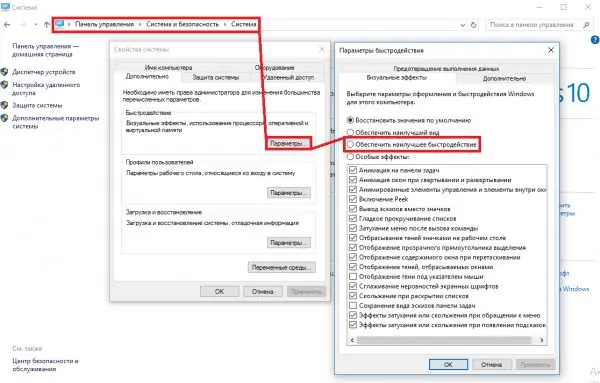
Red shows all the necessary steps to enable the maximum system performance mode.
Now you know what Windows 10 personalization is and what it is responsible for. Accordingly, if you wish, you can change the system interface, expand the design options, and also troubleshoot the settings if they are found.
Recommended:
How To Build A Sun Lounger With Your Own Hands From Wood And Other Materials - Step By Step Instructions With Photos, Videos, Drawings, Work Progress And Dimensions
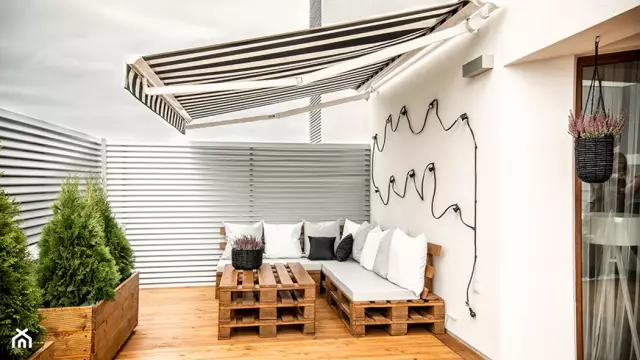
How to make a sun lounger with your own hands for a summer vacation. Selection of materials, types of structures and drawing up a drawing of the selected type with further assembly
Windows 7 Device Manager: Where And How To Open It, What To Do If It Won't Open, Won't Work, Or Is Empty, And If It Doesn't Have Any Ports, Printer, Drive, Monitor Or Video Card
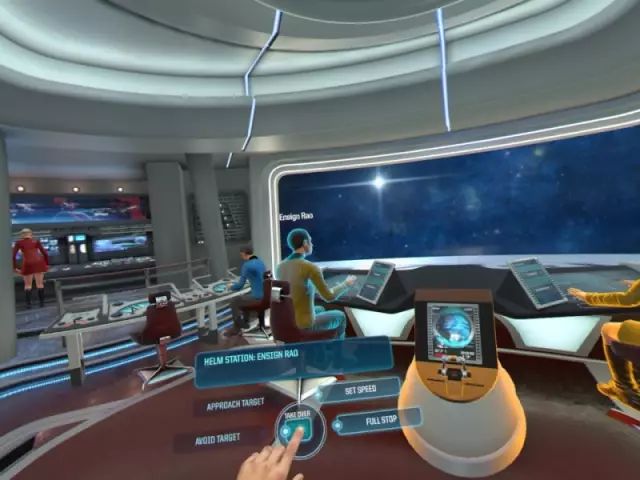
Windows 7 Device Manager. Where to find it, why you need it. What to do if it does not open or if you encounter unexpected problems while working with it
Step-by-step Instructions For Replacing The Lock On The Door: Tools And Work Steps, Expert Advice And Recommendations
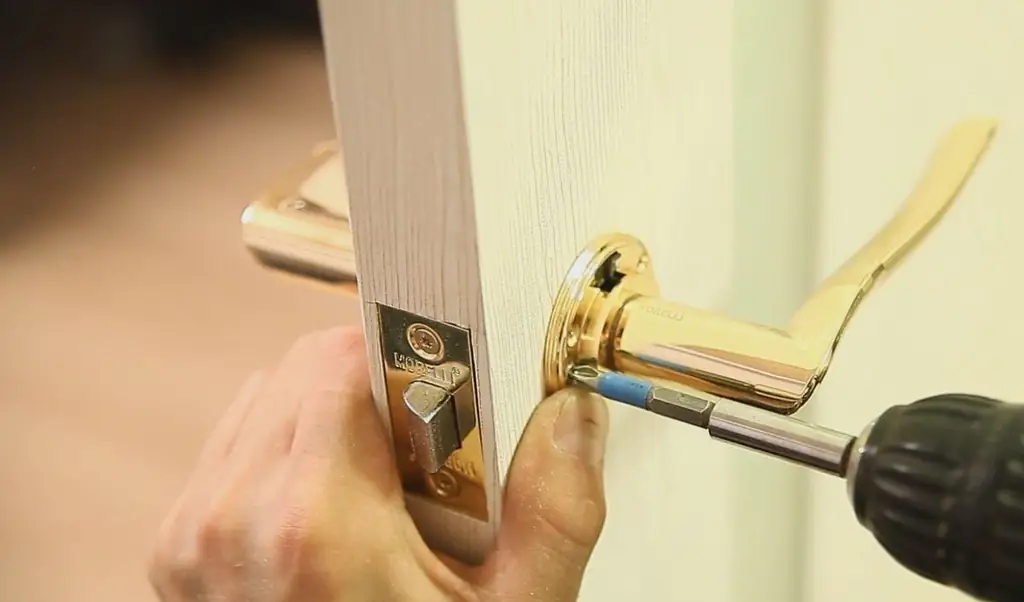
Types and types of door locks. How to determine the type of lock yourself. How to replace the lock in case of breakage. Required tools and materials. Work order
Why On Windows 10 The Start Button Does Not Work And The Main Menu Does Not Open

The most common problems in the "Start" menu on Windows 10. The reasons for the appearance. Solutions: universal and for specific cases
Installation Of Soft Roofs, Including Preparation Of The Roof For Work, As Well As Equipment For Work
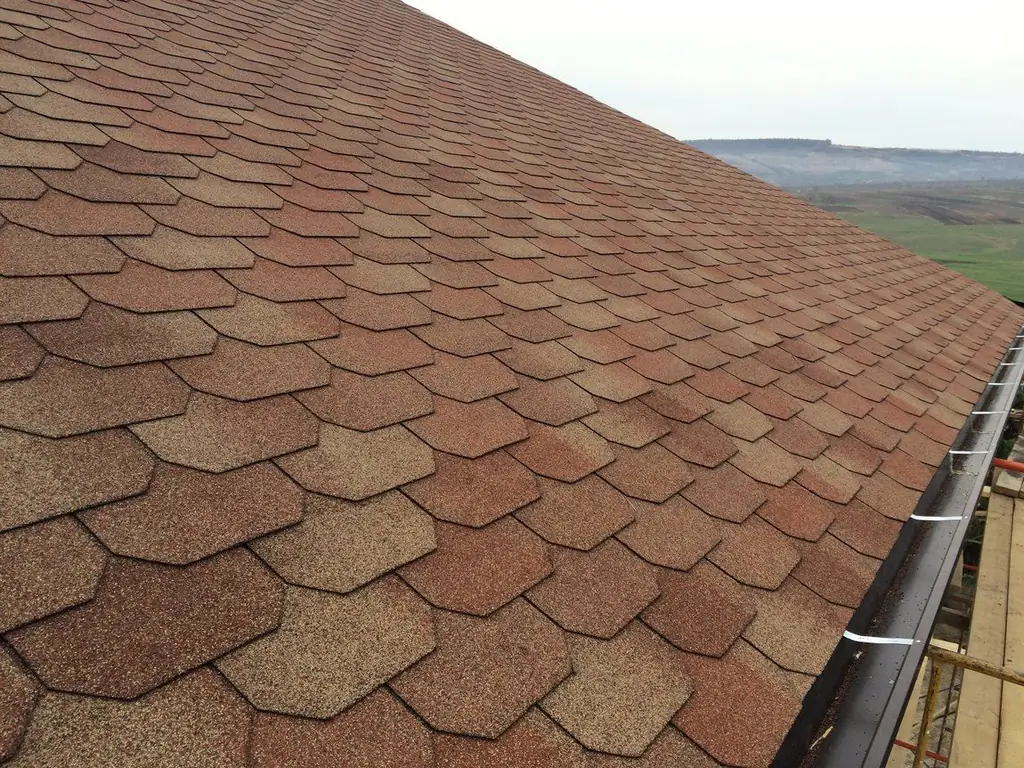
Preparatory work before installing a soft roof. Layout and methods of laying. Features of the assembly of additional elements on the roof. Required tools
